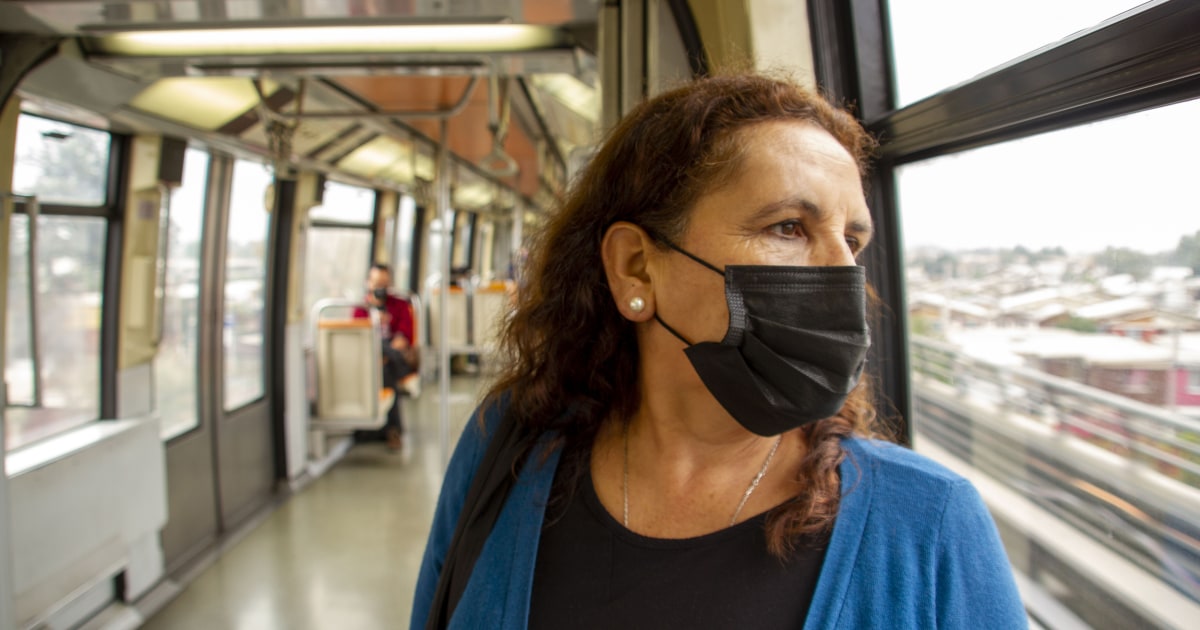SANTIAGO, Chile – One year after the pandemic began, Genoveva Fernández Rodríguez, 59, a cleaning lady in Chile, is still vigilantly wearing her mask, using gel alcohol and disinfecting her clothes after work.
Fernández will receive her first dose of vaccine on Thursday, but as she goes to work every day on the Santiago metro, she finds herself actively avoiding groups of young people who she feels have given up basic measures against the coronavirus.
A second massive wave of coronavirus is taking hold in Chile, despite a highly praised vaccination program, which is the best in Latin America and one of the best in the world.
Millions of Chileans like Fernández are returning to the total blockade on Thursday, after health officials this week ordered a return to the restrictions of the first phase. The renewed order means that 70 percent of the 19 million Chileans will be confined to their homes under stricter measures, such as removing permits to visit supermarkets on weekends.
On Saturday, Chile recorded the highest number of daily cases since the start of the pandemic, 7,084 new cases from Covid-19, breaking the single-day record of 6,938 recorded in June.
The second wave is taking the country’s health system dangerously close to the breaking point. Critical bed occupancy is 95 percent, and many medical staff members involved in wards infected with Covid-19 for a year – sometimes working on complex cases beyond their levels of expertise – took sick leave due to exhaustion and stress .
For many, the alarming increase in cases contradicts the government’s impressive efforts to vaccinate quickly, delivering doses almost seven times higher than those in Brazil.
Distributing about 225,000 doses per day – mainly of the Chinese Sinovac vaccine – Chile has administered nearly 9 million doses so far, the equivalent of 47 doses per 100 people, according to the University of Oxford, England. Only Israel and the United Arab Emirates managed more. In contrast, the second highest performance in Latin America is Brazil, with 7 doses per 100 people.
Summer travel, Covid variants and overconfidence of the vaccine
“I see young people everywhere gathering in large groups, at birthday parties or holidays. Masks are mandatory in Chile, but I see many young people wearing them by the chin, eating food on the subway, but without being careful, “said Fernández.” I think they believe the government is trying to manipulate them with the rules, but it just seems like they don’t care about protecting me as an older person. ”
Dr. Ximena Aguilera Sanhueza, director of the Chilean Epidemiology and Health Policy Center, which serves on the advisory board of Covid-19 of the Chilean Ministry of Health, said: “Young people are the drivers of the pandemic, but they have also increased considerably the mobility in the last summer seems to be the main causes of the increase of the infections. There are many variables, always changing. ”
Chile’s summer is from December to March.
A report by the Universidad del Desarrollo, where Aguilera is based, tracked cell phone data that showed huge increases in the movement of people in January and February – when Chileans were allowed to travel on vacation after interregional travel was banned, except in essential cases.
The vacation allowance made 5 million people move across the country in the summer, earlier this year, and the cases have now dragged Chile into a medical crisis, with winter approaching.
“We are now at a critical stage and in a race between having enough intensive care units and staff for patients and the protection we hope to obtain with the continuation of vaccines,” said Aguilera.
Dr. Claudia Cortés, vice president of the Chilean Society for Infectious Diseases, said that some aspects of the second wave were even more worrying than the first.
“We hope that cases will continue to increase in the coming weeks, and that does not bode well when our hospital system is already close to collapsing,” said Cortés. “In the first wave, sporadic outbreaks meant that we could evacuate patients to other hospitals with more beds available, but after the holidays, hospitals are full across the country.”
Aguilera and Cortés cited a mixture of factors that contributed to the increase in cases, with new variants from Brazil and the United Kingdom, now confirmed in Chile, playing a role.
But there are strong suggestions that the fanfare and enthusiasm surrounding Chile’s successful program may also have caused people to let their guard down.
“The government was too optimistic and there was an incorrect handling of information about the good initial vaccine implantation,” said Cortés. “It seems that people have been under the impression that everything is fine now, but there needs to be a clear message that vaccines are only part of the fight against the pandemic. This does not mean that we can forget the basics, such as social distance and wearing masks.
“Almost 6 million people received the first dose, but only 3 million received the second dose,” she said. “Peak immunity for individuals does not occur until about 14 days after the second dosage and, to achieve collective immunity, we need about 80% of the population to reach that point. We don’t expect to get there before June or July at the current rate, and even so, it doesn’t offer complete protection against infections.
“We need to remain sensible,” said Cortés.
follow Latin NBC in the Facebook, Twitter and Instagram.
